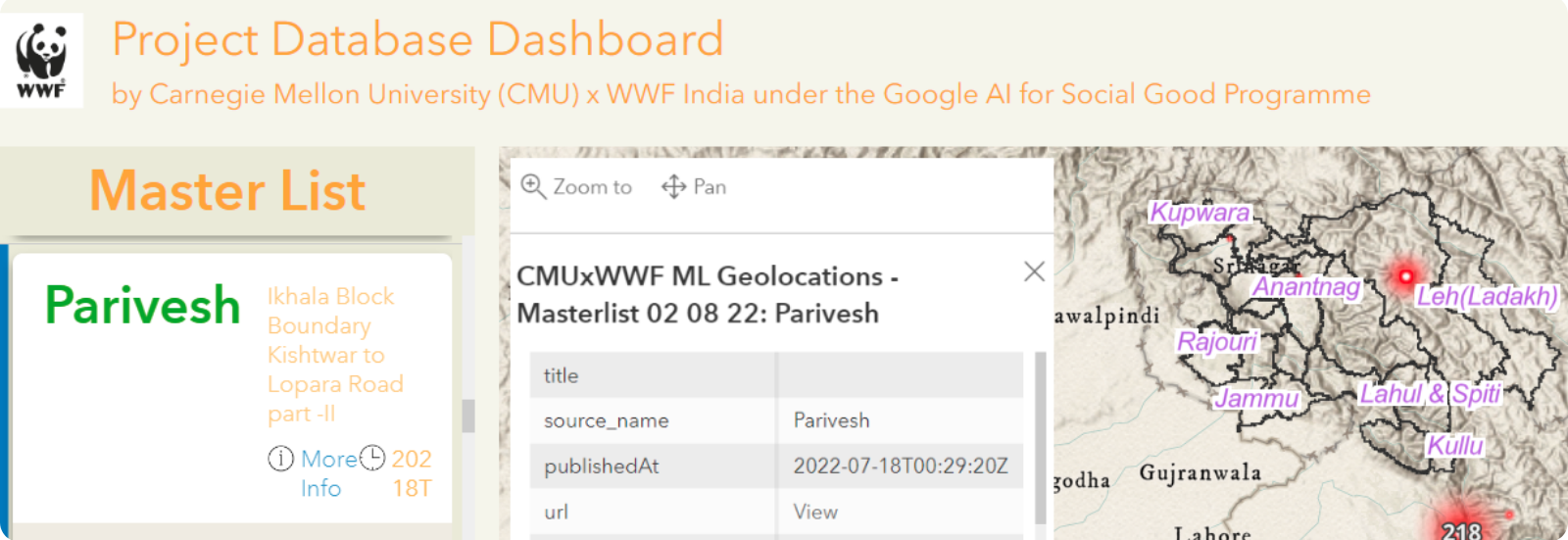
A screenshot of the NewsPanda articles visualized on WWF's dashboard
|
|
|
|
|
|
|
|
|
|
|
|
|
|
|
|
|
|
|
|
|
|
|
[code] |
[slides] |
[paper] |
Non-governmental organizations for environmental conservation have a significant interest in monitoring conservation-related media and getting timely updates about infrastructure construction projects as they may cause massive impact to key conservation areas. Such monitoring, however, is difficult and time-consuming. We introduce NewsPanda, a toolkit which automatically detects and analyzes online articles related to environmental conservation and infrastructure construction. We fine-tune a BERT-based model using active learning methods and noise correction algorithms to identify articles that are relevant to conservation and infrastructure construction. For the identified articles, we perform further analysis, extracting keywords and finding potentially related sources. NewsPanda has been successfully deployed by the World Wide Fund for Nature teams in the UK, India, and Nepal since February 2022. It currently monitors over 80,000 websites and 1,074 conservation sites across India and Nepal, saving more than 30 hours of human efforts weekly. We have now scaled it up to cover 60,000 conservation sites globally.

A screenshot of the NewsPanda articles visualized on WWF's dashboard
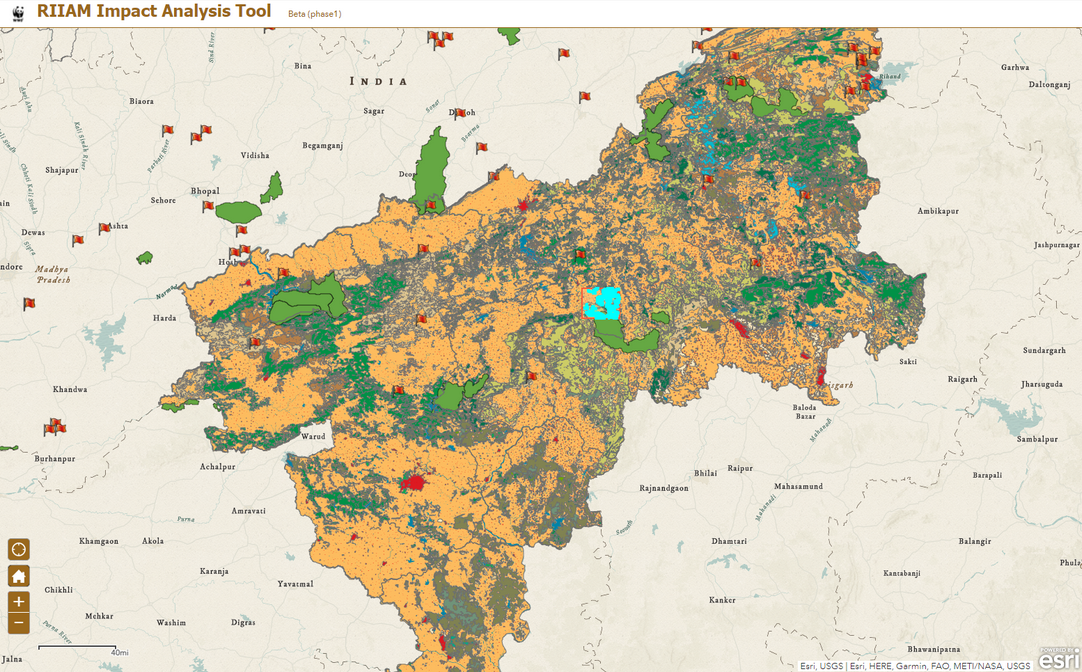
A screenshot to the RIIAM Impact Analysis Tool of WWF. Red markers correspond to locations of articles flagged by NewsPanda as relevant to conservation and/or infrastructure.
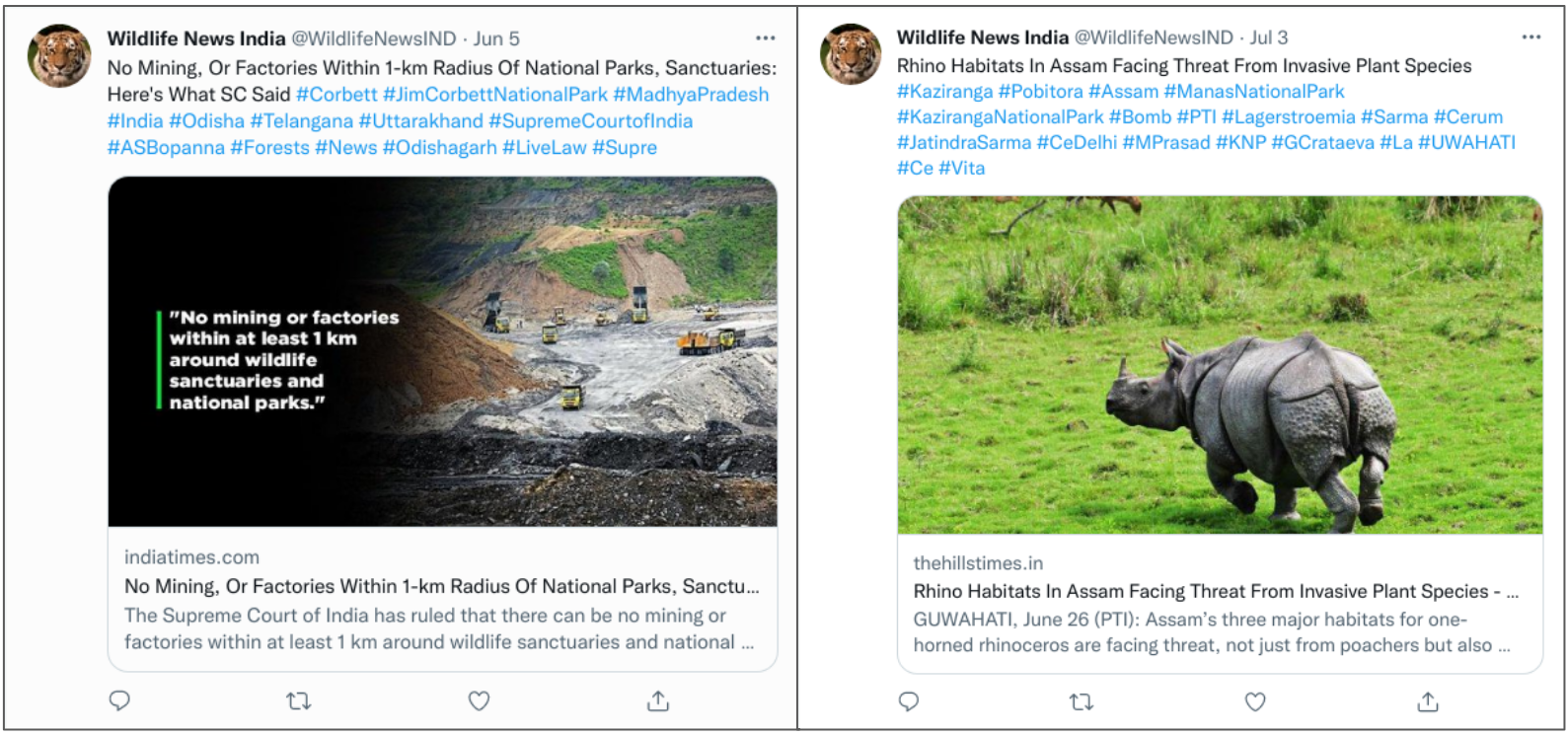
Sample tweets from the NewsPanda Twitter account, which periodically tweets links to conservation-related articles in India.
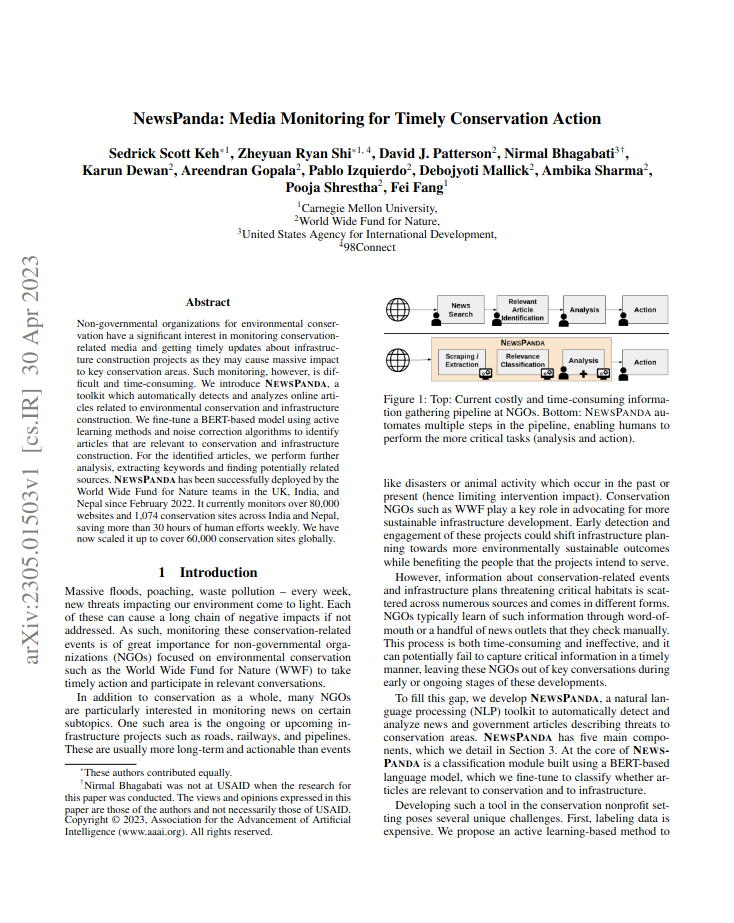
|
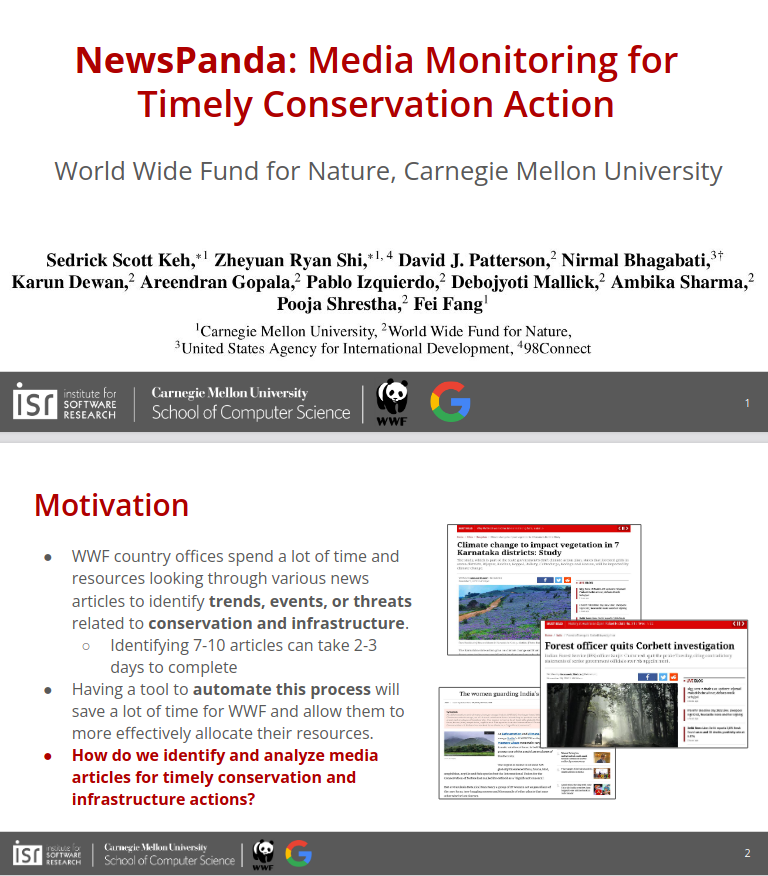
|
| Paper | Slides |
@inproceedings{newspanda,
title={NewsPanda: Media Monitoring for Timely Conservation Action},
author={Sedrick Scott Keh* and Zheyuan Ryan Shi* and David J. Patterson and Nirmal Bhagabati and
Karun Dewan and Areendran Gopala and Pablo Izquierdo and Debojyoti Mallick and Ambika Sharma and
Pooja Shrestha and Fei Fang},
booktitle={Conference on Innovative Applications of Artificial Intelligence (IAAI)},
year={2023}
}
We thank Mr. Pramod Neupane, Consultant-Sustainable Infrastructure at World Bank, for all his support during the initial phase of the project which includes project conceptualization, data curation, funding acquisition, project administration for WWF Nepal, and resources allocation at WWF Nepal. We also thank the communications team at WWF Nepal for providing the weekly news links. This work was supported in part by a Google AI for Social Good award, NSF grant IIS-2046640, a Siebel Scholarship and a Carnegie Mellon Presidential Fellowship.